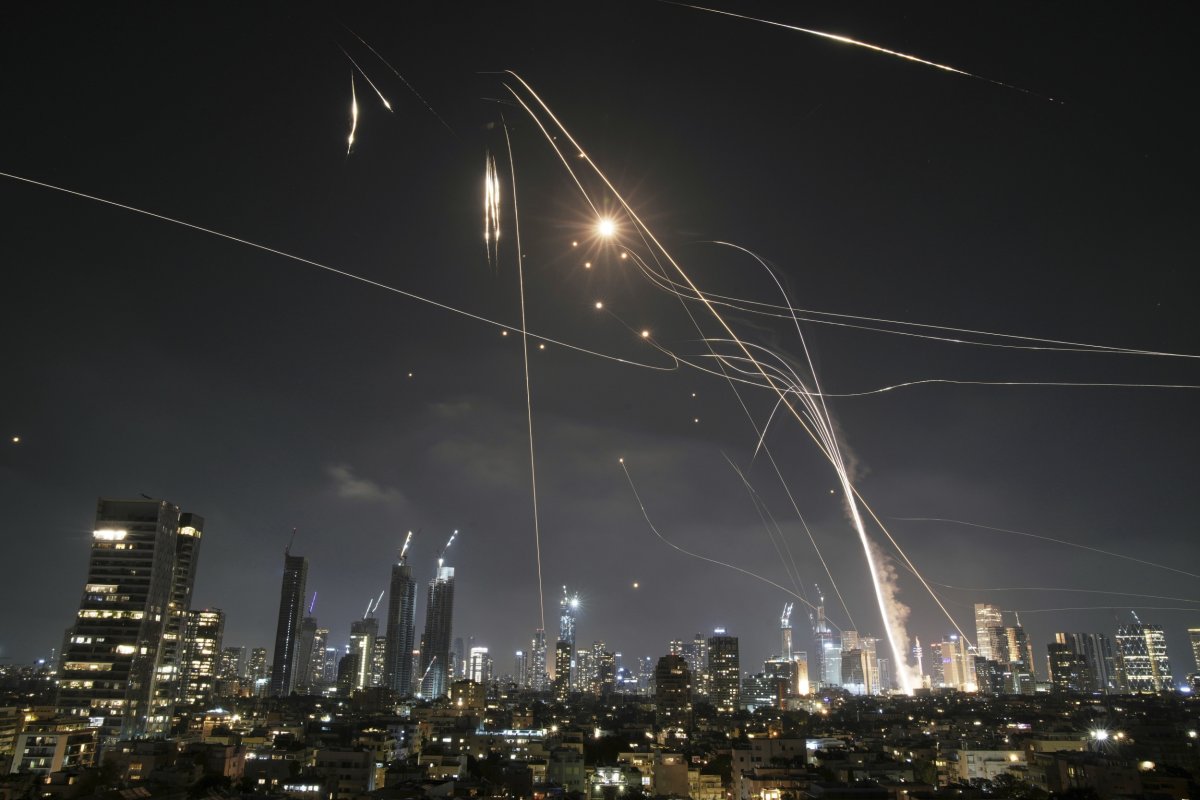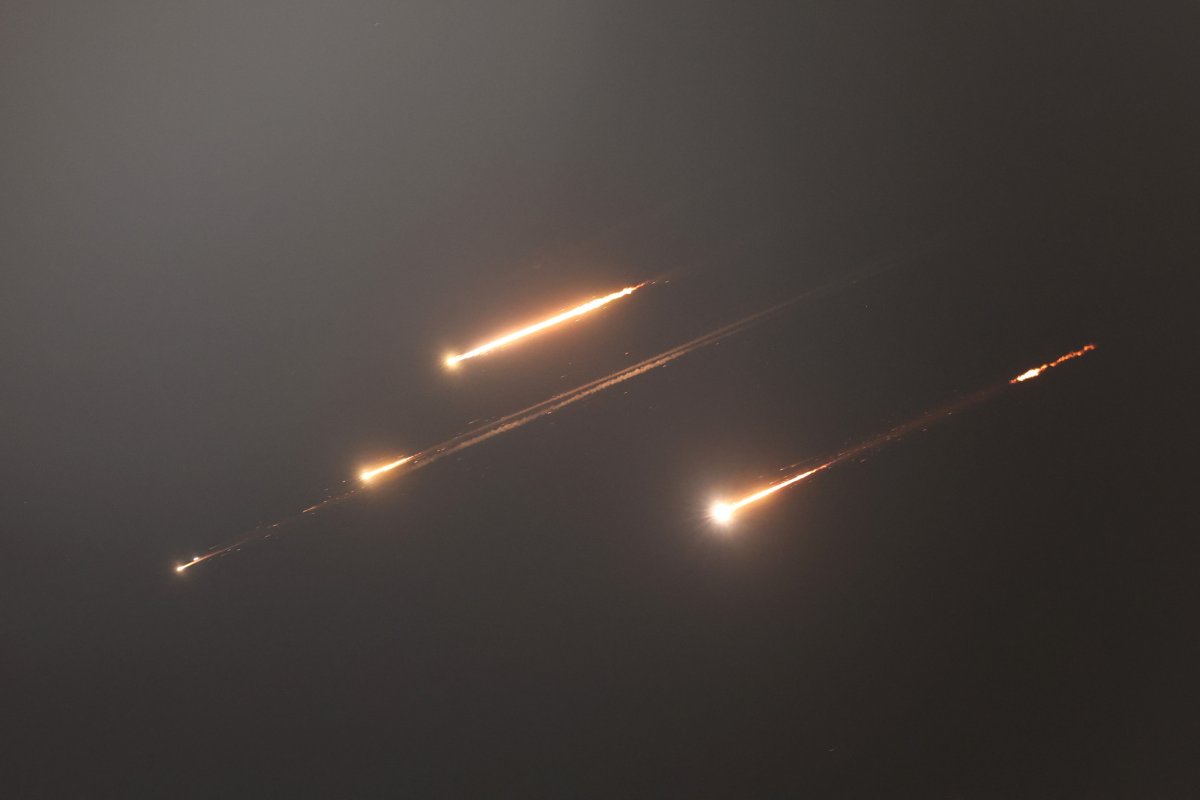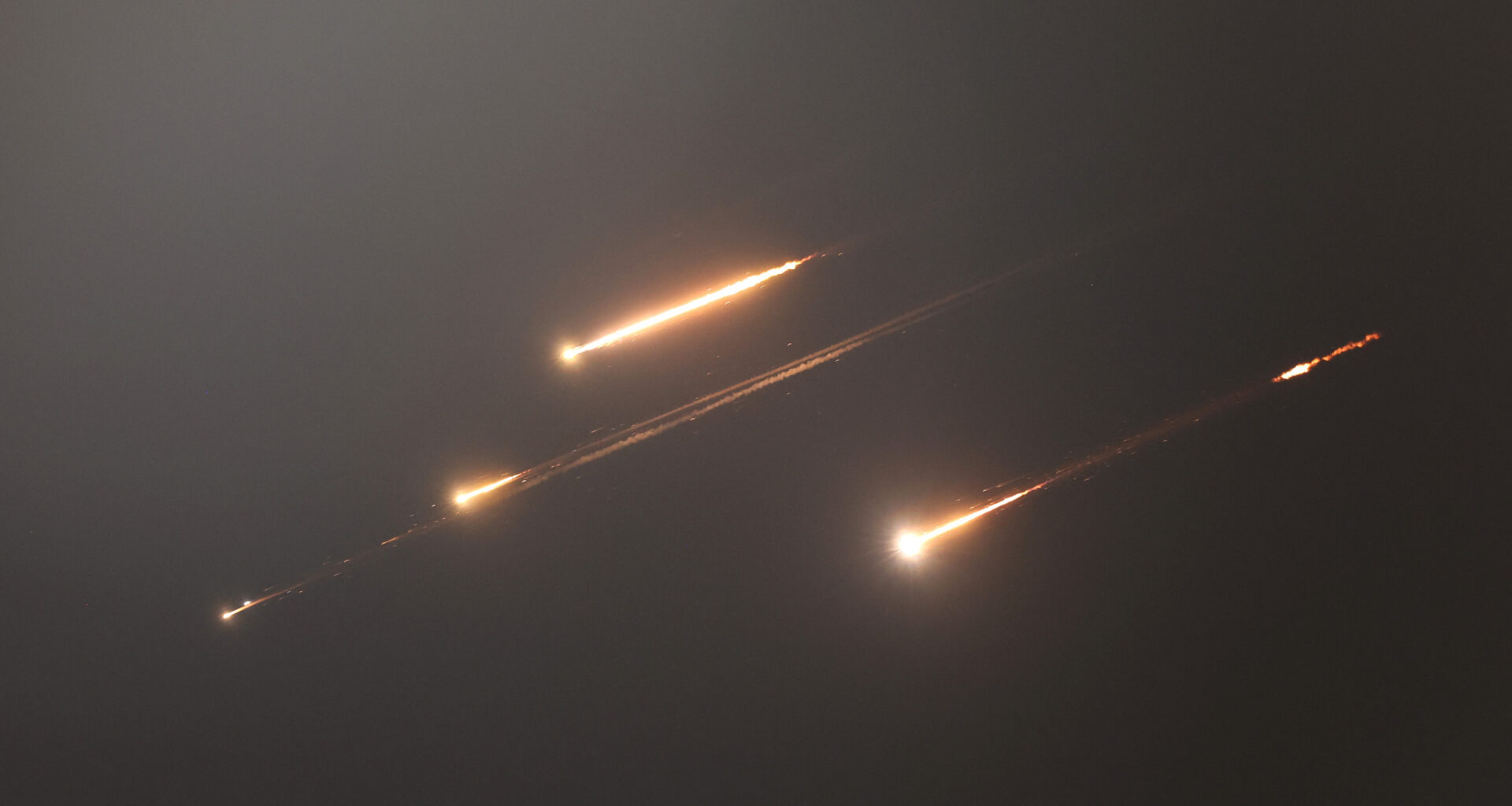Air raid sirens blared, and explosions echoed across Israel on Friday night as Iranian rockets struck Tel Aviv, the country’s commercial center in response to deadly Israeli strikes on its nuclear facilities and top military commanders.
Footage has since emerged of large plumes of smoke rising from the heart of Israel’s major city of Tel Aviv. As of early Saturday morning, local time, paramedics reported that at least 34 people were injured in the attack.
After the first of three waves of bombing, Israel Prime Minister Benjamin Netanyahu used his address to speak to the people of Iran.
He said, “To the brave people of Iran, our fight is not against you. It is against the Islamic regime that has oppressed them for nearly 50 years and threatens to destroy the State of Israel. The objective of Israel’s military operation is to eliminate the nuclear and ballistic missile threat.
Netanyahu continued, “And while we achieve our goals, we’re also clearing the way for you to achieve yours. The light will defeat the darkness.”
The Israel Defense Forces (IDF) later reported that “fewer than 100” Iranian surface-to-surface missiles had been fired toward Israel in two sets of barrages, “most” of which “were intercepted by air defense systems or failed to reach their targets.”
“There are a few impacts on buildings, some caused by interception debris,” the IDF said, advising Israelis to continue following safety guidelines.

Israeli Iron Dome air defense system fires to intercept missiles over Tel Aviv, Israel, Friday, June 13, 2025.
Israeli Iron Dome air defense system fires to intercept missiles over Tel Aviv, Israel, Friday, June 13, 2025.
Associated Press
Israel’s continued strikes on Iranian nuclear facilities, military leaders, and scientists killed 78 people and injured more than 320 on Friday, with the “overwhelming majority” of casualties being civilians, according to Iran’s ambassador to the U.N. Security Council.
Iran’s third wave of bombing was reported in Jerusalem, located roughly 40 miles from Tel Aviv, around 1:30 a.m. local time on Saturday.
Both Israel and Iran are expecting continued strikes.
Iran Launches Retaliatory Strikes
“A short while ago, the IDF identified missiles launched from Iran toward the territory of the State of Israel,” the IDF said in a statement on Friday. “Defense systems are operating to intercept the threat. The public is instructed to enter a protected space and remain there until further notice. Leaving the protected space is only permitted following an explicit directive. Continue to follow the instructions of the Home Front Command.”
Shortly afterward, an Israeli military official said that “dozens of Iranian ballistic missiles are en route to Israel” in a statement shared with Newsweek, adding that “the people of Israel have been instructed to remain in bomb shelters until further notice.”
The notices came shortly after a press conference overseen by IDF spokesperson Brigadier General Effie Defrin was abruptly cut off due to what one Israeli official said was “an incoming Iranian attack on central Israel.”
“We are aware of Iran’s intentions to launch missiles and UAVs toward Israel,” Defrin told reporters at the briefing. “The IDF remains at peak readiness for all scenarios to protect the citizens of the State of Israel.”
Asked if the IDF expected allies to support Israel’s active defense as was the case during previous Iranian attacks conducted in April and October of 2024, Defrin said this was a “different scenario.” He began to discuss how Israel has demonstrated it “had the capability to defend itself” before alerts sounded, bringing the conference to a sudden end.

This picture shows rocket trails in the sky above Jerusalem on June 13, 2025.
This picture shows rocket trails in the sky above Jerusalem on June 13, 2025.
AHMAD GHARABLI/AFP/Getty Images
Iranian missiles vs. Israel’s air defenses
Israel’s multilayered air-defense system faced a major test Friday night as Iran launched a barrage of ballistic missiles. While the Israeli military said it intercepted most of the incoming missiles, it acknowledged “a few impacts on buildings.”
The assault posed one of the stiffest challenges yet for Israel’s air defenses, which have been intercepting a range of threats—from short-range rockets to ballistic missiles—fired from Gaza, Lebanon, Syria, Iraq, Yemen, and Iran since the war began on October 7, 2023.
A U.S. official confirmed that American ground-based air defense systems in the region assisted in intercepting some of the missiles.
“Yes, the U.S. is assisting in shooting down missiles targeting Israel,” the official told Newsweek.
Still, Israel has carried out the majority of these interceptions using its own advanced system, designed to assess incoming threats and respond only when projectiles are headed toward populated areas or critical infrastructure. While officials acknowledge the system isn’t foolproof, it has been credited with preventing widespread destruction and significant loss of life.
Iran Vowed to Revenge Israel’s Strikes
The beginning of the Iranian counterattack, called “Operation True Promise III,” was also reported by the country’s official Islamic Republic News Agency, which called on citizens to remain calm and follow public guidance. The attack was said to involve hundreds of ballistic missiles.
“Iran crossed red lines when it dared to fire missiles at civilian population centers in Israel,” Israeli Defense Minister Israel Katz said in a statement amid the Iranian attack Friday. “We will continue to protect the citizens of Israel and ensure that the ayatollah regime pays a very heavy price for its criminal actions.”
Iranian officials, including Supreme Leader Ayatollah Ali Khamenei, had vowed to exact a severe retaliation after Israel conducted an unprecedented series of strikes against military sites, nuclear facilities and senior leaders across Iran.
Among those killed include were Iranian Armed Forces chief of staff Major General Mohammed Bagheri, Islamic Revolutionary Guard Corps (IRGC) chief Major General Hossein Salami and IRGC Aerospace Forces commander Brigadier General Amir Ali Hajizadeh. At least four nuclear scientists, along with an unspecified number of civilians, including women and children, were also said to have been slain.
“We will not allow them to escape safely from this great crime they committed,” Iran’s Supreme Leader Ayatollah Ali Khamenei said in a recorded message Friday in which he vowed revenge.
Sites targeted by Israel include nuclear facilities in Natanz and Isfahan, along with a number of areas in the capital Tehran, including residential buildings.
The Iranian military has claimed to have downed two Israeli F-35 fighter jets and a large number of Israeli drones, though an Israeli official has denied the claim. The IDF has also denied reports that Iran had captured a female Israeli pilot.
An IDF spokesperson declined Newsweek’s request to comment on reports that the Israeli military headquarters in Tel Aviv was struck during the Iranian response.
The IDF had earlier said it intercepted a number of drones launched against Israel from Iran. A missile launched from Yemen was also detected, followed by reports of an impact near the West Bank city of Hebron.
Shortly after the Israeli operation, dubbed “Rising Lion” commenced late Thursday, an Israeli military official told Newsweek that the attacks were initiated in response to intelligence indicating that Iran had obtained enough material to produce up to 15 nuclear bombs.
Iranian officials have always denied seeking a nuclear weapon. The United States and Iran have held five rounds of negotiations regarding the country’s nuclear program, with a sixth round scheduled for Sunday.

People react next to a building struck by a missile fired from Iran, in Tel Aviv, Israel, on Friday, June 13, 2025.
People react next to a building struck by a missile fired from Iran, in Tel Aviv, Israel, on Friday, June 13, 2025.
Associated Press
US Military Involvement with IDF
U.S. Secretary of State Marco Rubio issued a statement late Thursday saying that the U.S. was not involved in the Israeli attacks and warning Iran against pursuing retaliatory measures against U.S. positions in the region.
President Donald Trump cast blame on Iran for failing to adhere to a 60-day deadline he issued Khamenei in March to reach a nuclear deal in two back-to-back posts to Truth Social published Friday. He urged Tehran to accelerate efforts to reach an agreement.
Netanyahu said Israel told the U.S. about its plans to attack Iran in advance.
“They knew about the attack. What will they do now? I leave that to President Trump.”
President Trump‘s Middle East envoy Steve Witkoff is still scheduled to travel to Oman this weekend for discussions on Tehran’s nuclear program, though officials say it remains uncertain whether Iranian representatives will take part.
This article contains reporting by The Associated Press.
Update: 6/13/25, 4:01 p.m. ET: This article was updated with additional information and remarks.
Update: 6/13/25, 4:11 p.m. ET: This article was updated with additional information and remarks.
Update: 6/13/25, 5:57 p.m. ET: This article was updated with additional information.
Update: 6/13/25, 6:24 p.m. ET: This article was updated with additional information.
Update: 6/13/25, 6:59 p.m. ET: This article was updated with additional information.
